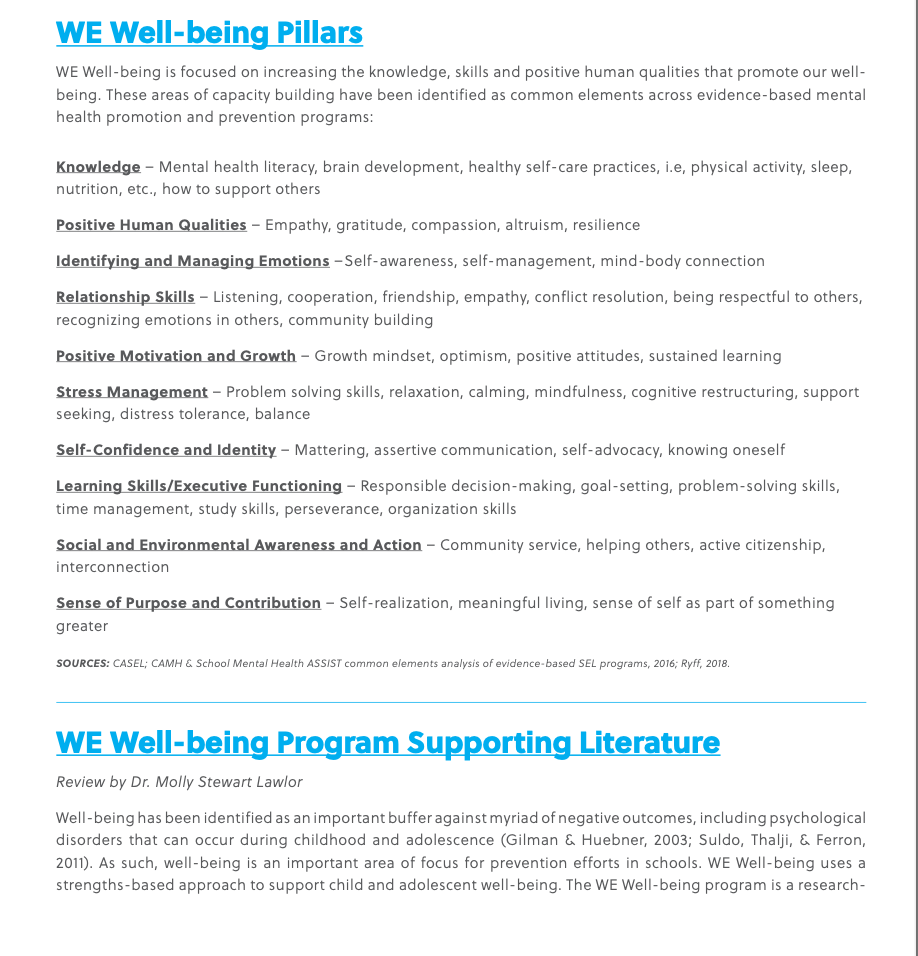Home » Posts tagged 'studentsmentalhealth'
Tag Archives: studentsmentalhealth
Mental Health in Classrooms
Mental health is critical to students’ general prosperity and scholarly achievement. Students’ mental health can be supported or challenged by the environment in their classroom. It is imperative for educators to pay close attention to the mental health of their students and to foster a supportive environment that encourages emotional well-being. Teachers can positively impact students’ lives and help them succeed academically and personally by addressing mental health in the classroom.
We.schools.org has brought light to the attention of mental health for students and the importance of it. (On the right.)

Establishing a protected and comprehensive homeroom environment is urgent for supporting students’ emotional and mental health. Students can develop an environment where they feel at ease expressing their feelings, sharing their experiences, and seeking assistance when needed. Undivided attention and compassion are fundamental abilities for educators, permitting them to recognize indications of pain or psychological well-being worries in their understudies. Teachers can foster open communication and make students feel valued and understood by being approachable and non-judgmental.
We.schools offers a variety of modules for anyone to look into.

They say,
“Engage students in issues related to the theme of Health and Well-being. Here you will find topics like mental health and well-being, bullying and cyberbullying, nutrition, physical health and healthy relationships.”
Through scrolling, you are able to scroll and examine different modules that relate to Healthy relationships, Mental Health & Wellbeing, and Nutrition (as well as bullying, clean water, and physical health.)

Executing mental health schooling inside the educational plan is indispensable to supporting understudies’ prosperity. Teachers can teach students valuable skills for effectively navigating their emotions by incorporating emotional intelligence, stress management, resilience, and self-care lessons. Teachers can help their students prioritize their mental health by teaching mindfulness techniques, promoting healthy coping strategies, and providing resources for mental health support.

The advantages extend beyond the classroom when teachers actively support students’ mental health. Students are more likely to develop a positive attitude toward learning, exhibit improved academic performance, and have better overall life outcomes when they feel emotionally supported and understood. Teachers can assist in preventing potential difficulties from growing and provide students in need with the necessary support and resources by addressing mental health issues early on.
The classroom-based modules that weschools offer fosters collaboration, empathy, and genuine care for and with others by bringing together a profound sense of oneness. The purpose of these transformative modules is to instill a profound appreciation for the interconnectedness of the classroom community.
Students are encouraged to recognize that they are part of a larger whole and that their thoughts, actions, and well-being are intricately linked to the well-being of their peers by embracing the concept of oneness. By eliminating divisions and encouraging inclusion, this understanding fosters a sense of unity and belonging. Understudies figure out how to commend the variety and worth of every individual’s one-of-a-kind points of view and encounters in the aggregate learning space.
Inside this supporting climate, cooperation becomes the dominant focal point. Understudies are urged to cooperate, consolidating their assets and gifts to accomplish shared objectives. They know that a team’s progress is more important than a person’s success. Through collaborative projects and activities, students can learn essential skills like effective communication, active listening, problem-solving, and compromise.
Greater empathy is naturally developed in students who participate in collaborative learning experiences. They figure out how to genuinely see and grasp their companions, perceiving the everyday human encounters that tight spot them. Through dynamic sympathy, understudies foster the ability to focus on others. They listen mindfully, approve feelings, offer help, and try to grasp alternate points of view. Within the classroom community, acts of kindness, compassion, and support become second nature.
Educators are essential in encouraging unity, coordinated effort, and care. They make a safe and sustaining space where understudies feel open to putting themselves out there and embracing weakness. Teachers encourage students to emulate these characteristics by modeling them for them. They facilitate opportunities for students to connect on a deeper level, encourage active participation, and encourage open dialogue. Instructors and mentors encourage understudies to become humane and drawn-in homeroom local area individuals through their direction and mentorship.
The advantages of developing unity, cooperation, and care in the study hall stretch far past scholarly accomplishment. The fundamental life skills that students acquire will benefit them personally and professionally. They learn to esteem cooperation, regard different viewpoints, and explore clashes with elegance and understanding. The feeling of having a place and connectedness they experience cultivates good emotional wellness, versatility, and a more noteworthy identity worth.
Focusing on oneness, collaboration, and care in the classroom is truly transformative in a world that frequently emphasizes competition and individualism. It supports an age of people who grasp the force of solidarity, esteem the strength of aggregate exertion, and focus on the prosperity of others. These modules make an enduring effect, molding understudies into caring, sympathetic, and socially mindful people prepared to decidedly impact their networks and add to an agreeable and interconnected world.